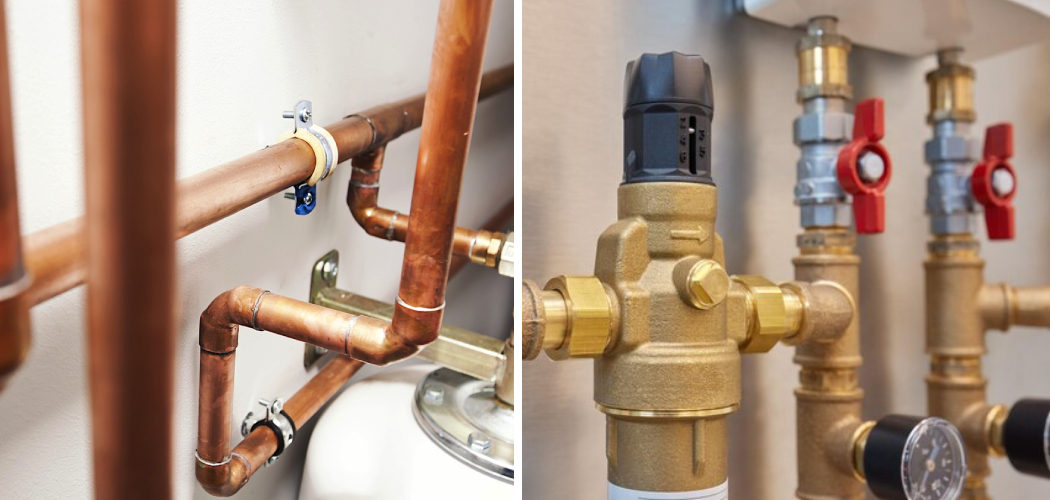Pipes are a crucial part of our homes and businesses, providing us with access to essential utilities such as water, gas, and electricity. However, sometimes these pipes can cause issues that disrupt the peace and quiet of our daily lives. One common problem that homeowners face is knocking pipes.
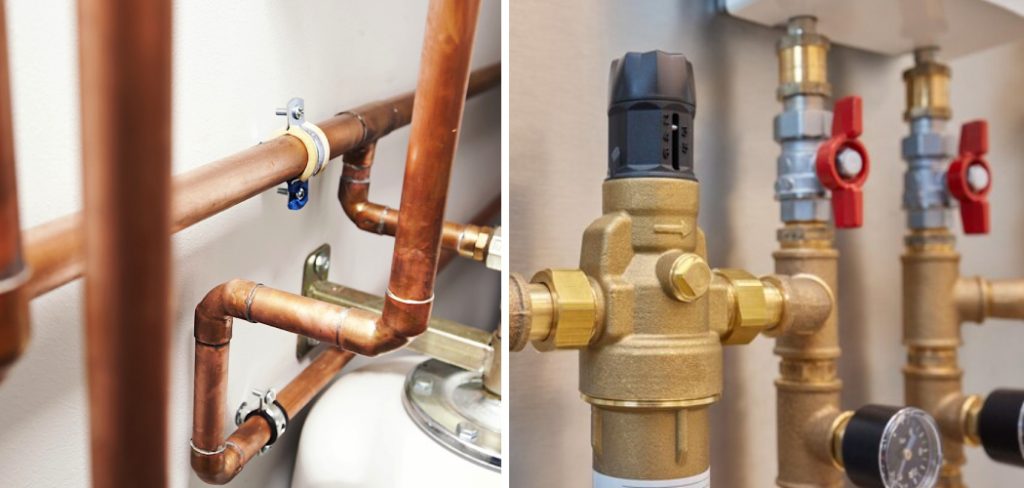
The main advantage of knowing to fix knocking pipes is that it can save you a lot of money in plumbing costs. When pipes start knocking, many people automatically think they need to call a plumber and have the problem fixed. However, with some basic knowledge and tools, you may be able to fix the issue yourself. In this blog post, You will learn in detail how to fix knocking pipes.
Step-by-step Instructions for How to Fix Knocking Pipes
Step 1: Inspect the Pipes
The first step in fixing knocking pipes is to inspect them thoroughly. Look for any loose or damaged pipes, as well as any obstructions that may be causing the knocking sound. Additionally, check if there are any worn out washers or other parts that may need replacement.
Step 2: Secure Loose Pipes
If you find any loose pipes during your inspection, the next step is to secure them. Use pipe hangers or straps to secure the pipes in place and prevent them from moving around. This will help eliminate any knocking sounds caused by the movement of loose pipes.
Step 3: Replace Damaged Parts
If you notice that any parts of your plumbing system are damaged, such as washers, valves, or joints, you will need to replace them. These damaged parts can cause vibrations and knocking sounds in your pipes, so replacing them is essential for fixing the issue.
Step 4: Check Water Pressure
High water pressure can also be a culprit behind knocking pipes. Use a pressure gauge to check the water pressure in your home, and if it is too high, you may need to install a pressure reducing valve. This will help regulate the water pressure and prevent your pipes from knocking.
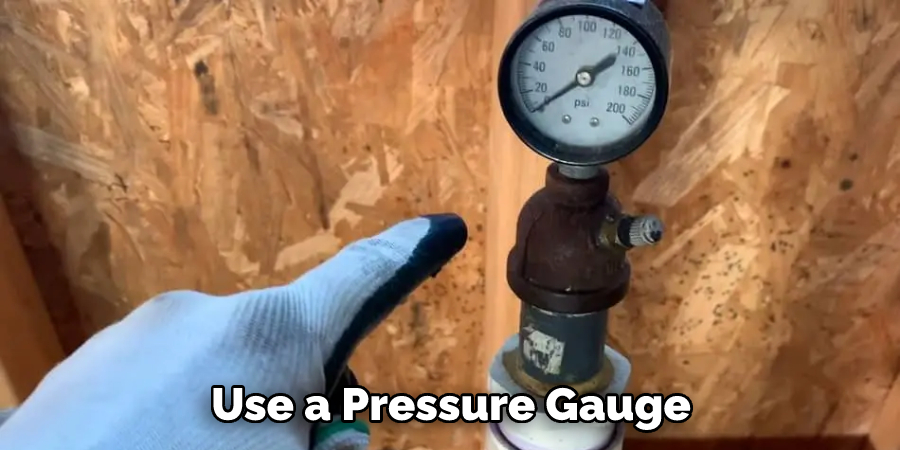
Step 5: Insulate Pipes
Sometimes, knocking sounds can be caused by the expansion and contraction of pipes due to temperature changes. To prevent this, you can insulate your pipes with foam or other insulation materials. This will also help improve energy efficiency in your home.
Step 6: Call a Professional
If you have tried all of the above steps and are still experiencing knocking pipes, it may be time to call a professional plumber. They will have the expertise and tools needed to diagnose and fix any underlying issues with your plumbing system.
By following these step-by-step instructions, you can effectively fix knocking pipes in your home. Remember to always handle plumbing issues with caution and seek professional help if needed.
Tips for How to Fix Knocking Pipes
- Before starting any repairs on your knocking pipes, it is important to turn off the water supply. This will ensure that you don’t have any unwanted leaks or accidental flooding while working on your pipes.
- Plumbing work can be messy and hazardous at times, which is why you should always wear protective gear such as gloves and safety glasses when fixing knocking pipes.
- Make sure to use the right tools for the job. Using improper tools can cause further damage to your pipes and make the problem worse.
- It is important to inspect your piping system thoroughly before attempting any repairs. This will help you identify any potential issues or underlying problems that need to be addressed.
- When working with metal pipes, be careful of sharp edges and use caution when handling them. It is also a good idea to have a first aid kit nearby in case of any accidents.
- If your knocking pipes are located near electrical wiring or appliances, make sure to turn off the power before starting any repairs to avoid any potential electrocution hazards.
- Lastly, if you are unsure about fixing knocking pipes or if the problem seems too complex, it is always best to call a professional plumber. Trying to fix complicated plumbing issues without proper knowledge and experience can lead to costly damage and potential safety risks.
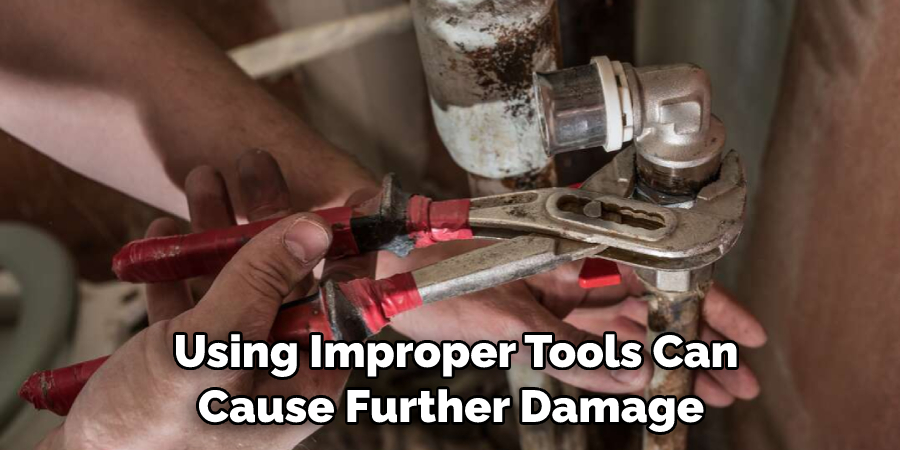
Is There a Specific Method or Technique to Fix Knocking Pipes?
When it comes to fixing knocking pipes, there is no one-size-fits-all method or technique. The solution often depends on the specific issue causing the knocking sound. In this section, we will discuss some possible methods and techniques that can help you fix knocking pipes.
One of the most common causes of knocking pipes is loose mounting straps. These straps are used to secure the pipes to the wall or floor, and when they become loose, they can cause the pipes to vibrate and create a knocking sound. To fix this issue, you will need to locate the loose straps and tighten them using a screwdriver or wrench. If the strap is damaged, it may need to be replaced.
Another potential culprit for knocking pipes is water hammer. This occurs when the water in the pipes suddenly changes direction or stops, causing a shockwave that can result in loud knocking or banging sounds. To fix this issue, you will need to install a water hammer arrestor. This device absorbs the shock and prevents it from traveling through the pipes.
How Long Does It Typically Take to Fix Knocking Pipes?
Fixing knocking pipes can vary in the amount of time it takes. The time it takes depends on various factors such as the severity of the knocking, the accessibility of the pipes, and your level of experience with plumbing repairs. In most cases, fixing knocking pipes should only take a couple of hours if there are no major issues and you have the necessary tools and knowledge.
However, if the issue is more complex, it may take longer and require professional help. If you are unsure about fixing knocking pipes or do not have the time or resources to do so, it is best to hire a professional plumber to avoid potential risks and further damage to your plumbing system.
What Should I Do if the Knocking Pipes Continue After Attempting to Fix Them?
If the knocking pipes continue even after attempting to fix them, it is important to assess the situation and identify any potential underlying issues. Here are a few steps you can take:
- Check for Loose or Damaged Pipes: Ensure that all pipes are securely fastened and not damaged in any way. If any pipes are loose or damaged, tighten or replace them accordingly.
- Check the Water Pressure: High water pressure can cause knocking noises in pipes. Consider installing a pressure regulator to reduce the pressure.
- Insulate the Pipes: If the knocking is caused by expanding and contracting pipes due to temperature changes, consider adding insulation around the pipes to reduce noise.
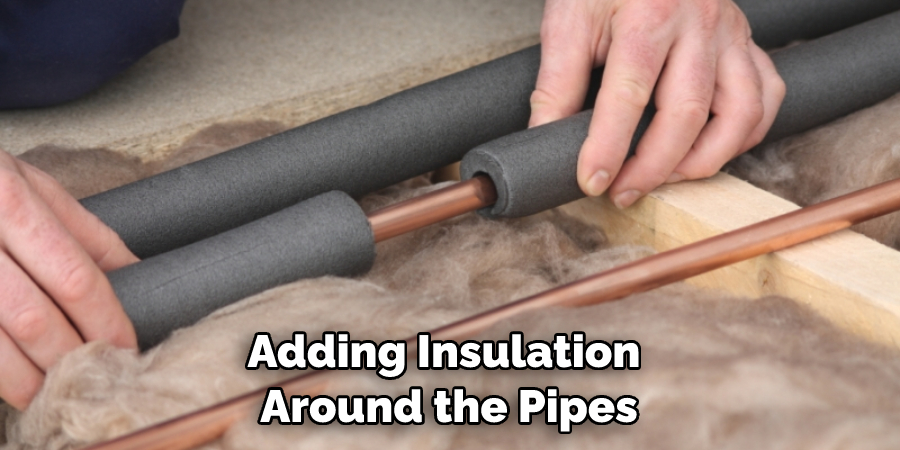
If these steps do not solve the issue, it is best to contact a professional plumber for further assistance.
Are There Any Risks Associated With Fixing Knocking Pipes?
Fixing knocking pipes may pose some risks, especially for those without experience in plumbing repairs. Some potential risks include:
1. Water Damage
If not fixed properly, knocking pipes can cause water damage to your home. Additionally, attempting to fix the issue without proper knowledge and tools can lead to further damage.
2. Personal Injury
Working with plumbing systems can be dangerous, especially if you are not familiar with the necessary safety precautions. There is a risk of burns, cuts, and other injuries if not handled properly.
3. Costly Mistakes
If the issue is not properly diagnosed and fixed, it may lead to costly mistakes that require professional help to repair.
To avoid these risks, it is best to hire a professional plumber or consult with one before attempting to fix knocking pipes. They have the necessary expertise and tools to safely and effectively resolve the issue.
Can You Prevent Knocking Pipes From Occurring in the Future?
While it may not be possible to completely prevent knocking pipes from occurring in the future, there are some steps you can take to minimize the chances of it happening:
1. Regular Maintenance
Schedule regular maintenance checks with a professional plumber to ensure that your plumbing system is in good condition and address any potential issues before they escalate.
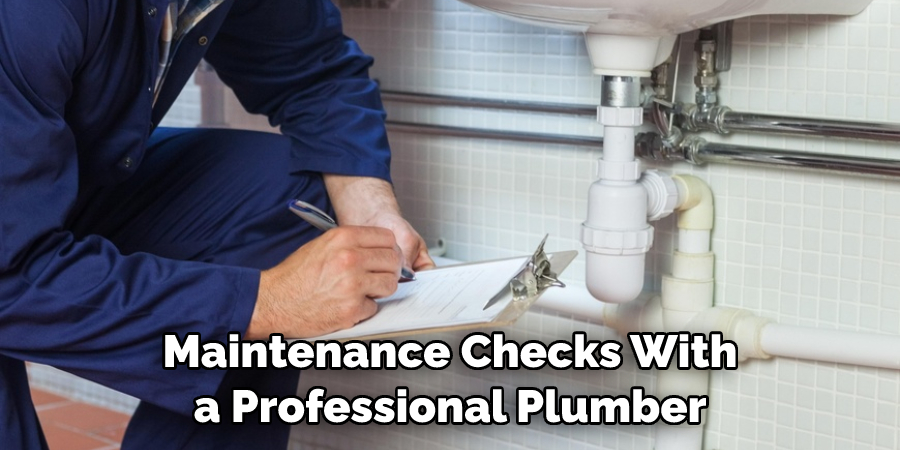
2. Avoid Sudden Changes in Water Pressure
Fluctuations in water pressure can cause pipes to knock, so try to avoid doing anything that may cause sudden changes in pressure such as flushing multiple toilets at once.
3. Properly Insulate Pipes
As mentioned earlier, adding insulation around pipes can help reduce noise from expanding and contracting. Ensure that all exposed pipes are properly insulated.
By taking these preventive measures, you can minimize the chances of experiencing knocking pipes in the future. However, if the issue does occur again, do not hesitate to seek professional help for a proper and lasting solution. Overall, with timely intervention and proper maintenance, fixing knocking pipes can be a relatively quick and straightforward process.
Are There Any DIY Methods for Fixing Knocking Pipes?
While it is always recommended to seek professional help for fixing knocking pipes, there are some DIY methods that you can try if the issue seems minor and you have some experience with plumbing repairs. These include:
- Securing Loose Pipes: Use pipe clamps or straps to secure any loose pipes that may be causing the knocking noise.
- Adding Cushioning: Place rubber pads or foam between pipes and any hard surfaces they may come in contact with to reduce noise.
- Installing Water Hammer Arrestors: Water hammer arrestors are devices that can help absorb the shock of sudden changes in water pressure, preventing knocking noises.
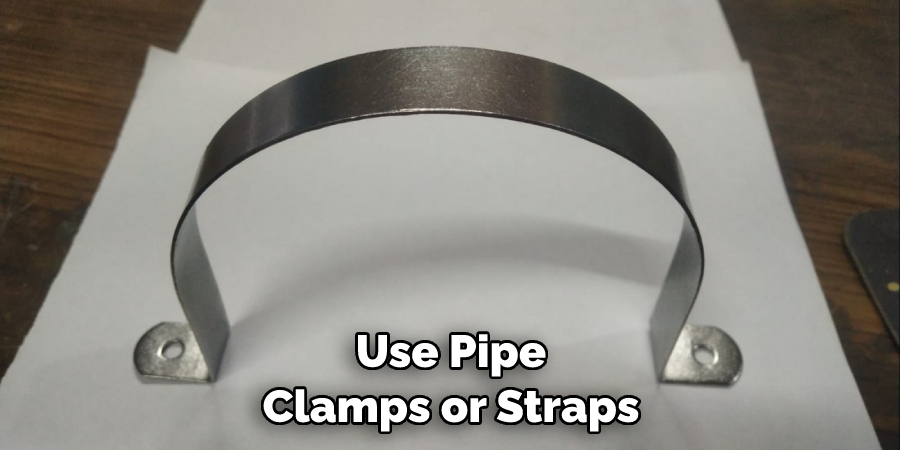
However, it is important to note that these methods may only provide a temporary solution and may not address any underlying issues. If the knocking persists or becomes more severe, it is best to consult with a professional plumber for a proper and lasting fix. Overall, fixing knocking pipes may seem like a daunting task, but with the right knowledge and tools, it can be easily resolved.
Conclusion
In conclusion, knowing to fix knocking pipes is essential for homeowners. It not only saves money on potential repairs, but it also promotes a safe and comfortable living environment. However, there are some disadvantages to consider when dealing with this issue.
Firstly, identifying the cause of the knocking pipes can be a challenging task. This may require specialized tools or professional help, which can increase expenses. Additionally, the solution to fixing knocking pipes may not always be a quick fix and could require ongoing maintenance.
Moreover, ignoring the issue of knocking pipes can lead to more significant problems, such as burst or leaking pipes. This can result in costly repairs and potential damage to property. I hope this article has been beneficial for learning how to fix knocking pipes. Make Sure the precautionary measures are followed chronologically.

